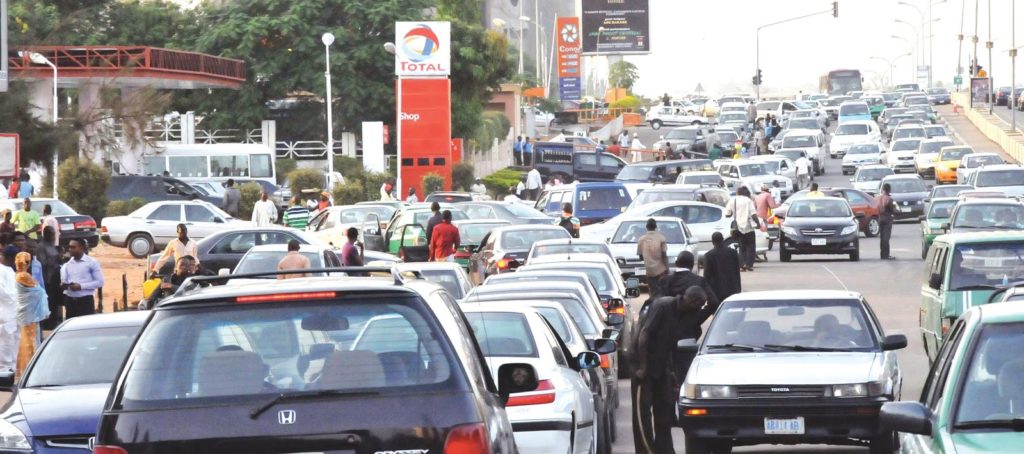The soaring price of fuel is impacting transportation service in Addis Ababa, Ethiopia’s capital where commuters are seen waiting for hours before they could get rides.
The Ethiopian Ministry of Trade and Regional Integration recently increased the price of gasoline by 30 per cent to 47.83 birr (0.92 U.S. dollars) per litre and hiked the price of one litre of diesel by 38 per cent to 49.02 birr.
Commuters who spoke to Xinhua said they had to wait for hours for taxis and pay higher fares despite the government’s fuel subsidies for commercial transport providers.
“There is a critical transportation problem and we had to queue for long hours as there are fewer taxis.
“This is due to the fuel price hike,” said Lidya Endeshaw.
Endeshaw said that the taxi fare increment that followed the fuel price hike “is in particular affecting low-income people.”
Tewodros Meshesha, a taxi driver in Addis Ababa, on his part said amid the latest fuel price hike, the number of vehicles on the road had decreased significantly.
He argued that taxi drivers were not well-informed about the government’s new fuel subsidy scheme and were purchasing fuel at the same price as ordinary private vehicle owners, causing them to eventually charge higher fares due to their rising fuel expenses.
The Ethiopian Ministry of Transport and Logistics recently said it had introduced a Fuel Subsidy Beneficiary Scheme for commercial transport providers so that they could serve commuters at reduced transportation costs.
Abdulber Shemesu, an official from the Ethiopian Ministry of Transport and Logistics, said that the subsidy is part of the government’s efforts to relieve commuters from the impact of the latest fuel price hike and increasing cost of living.
“The subsidy has been in place since July 6 but the majority of commercial transport providers lack awareness on how they can make use of the subsidy and they have been observed halting services,” said Shemesu.
The increase in fuel price is stoking fears of further deteriorating the already soaring cost of living among ordinary Ethiopians.
Africa’s second-most populous nation is already witnessing a sharp price increase in basic items.
Five litres of edible oil which used to be sold for around 400 birr but is now being sold for about 1,100 birr.
Amid scarce edible oil supply to the market and the eventual soaring demand, the government had previously dropped taxes and tariffs on imports of all edible oil products.
Ethiopia recorded 34 per cent general inflation in June, with food inflation alone reaching 38.1 per cent.













